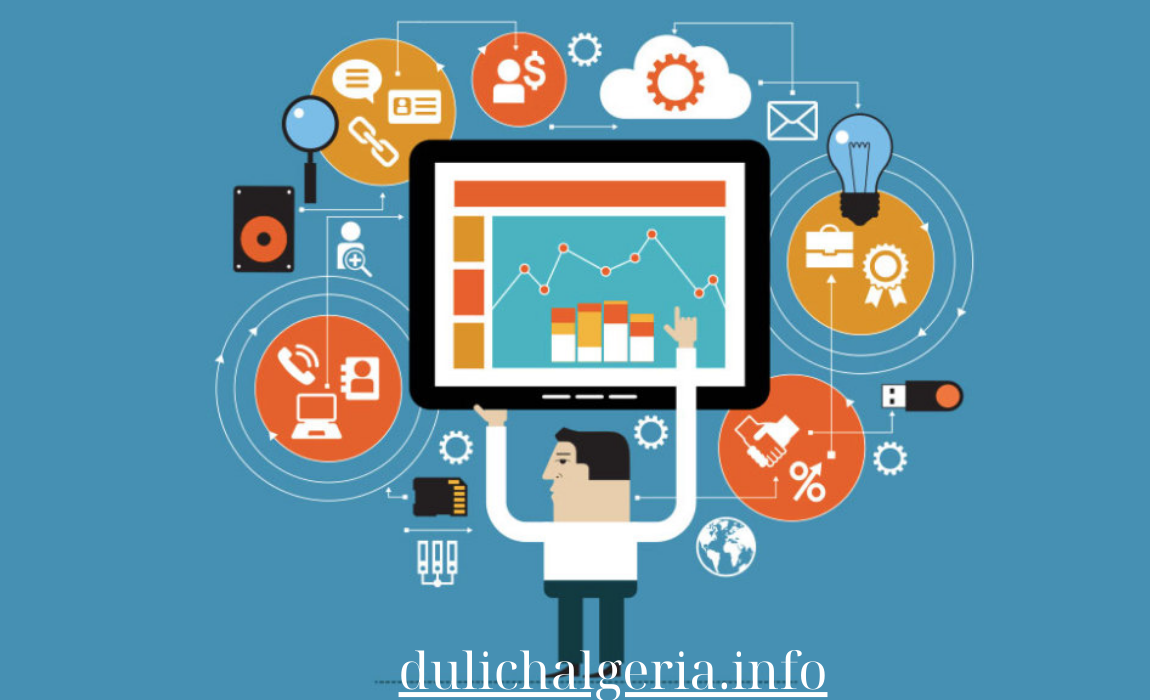In today’s data-driven marketing environment, leveraging analytics tools for marketing automation can significantly improve campaign performance. These tools provide deep insights into customer behavior, engagement, and conversion metrics, allowing marketers to automate their efforts and make data-driven decisions. By integrating analytics with marketing automation, you can enhance efficiency, personalize customer experiences, and boost your overall campaign success. Here are some of the best analytics tools for marketing automation that can help you supercharge your campaigns.
1. Google Analytics
Google Analytics remains one of the most powerful tools for tracking website traffic and customer behavior. When integrated with marketing automation platforms, it can provide valuable insights into how users interact with your campaigns, landing pages, and website.
- Key Features: Track user behavior, monitor goal completions, analyze conversion paths, and segment audiences based on behavior. You can set up custom reports to measure the performance of specific marketing campaigns and identify opportunities for optimization.
- Why It’s Essential: Google Analytics helps you understand where your traffic is coming from, which marketing channels are most effective, and how users are engaging with your content. These insights are crucial for refining your automated campaigns and improving conversion rates.
2. HubSpot
HubSpot is a leading marketing automation platform that offers robust analytics capabilities. It provides insights into website traffic, lead behavior, email performance, and more, all in one place. HubSpot’s analytics are designed to help marketers understand the entire customer journey and optimize each touchpoint.
- Key Features: Detailed reporting on email marketing, lead generation, and customer behavior. HubSpot integrates with Google Analytics and other tools to provide comprehensive data on campaign performance, along with powerful automation workflows.
- Why It’s Essential: HubSpot’s all-in-one platform combines automation with in-depth analytics, allowing marketers to create, track, and optimize campaigns seamlessly. The tool’s ability to automate follow-up actions based on data makes it a top choice for businesses of all sizes.
3. Marketo
Marketo is another industry-leading marketing automation tool with a strong focus on analytics. Its comprehensive reporting capabilities allow marketers to track the effectiveness of email campaigns, social media, and lead nurturing programs. Marketo also provides predictive analytics, helping marketers make smarter decisions.
- Key Features: Multi-touch attribution, campaign tracking, email performance analysis, and lead scoring. Marketo’s AI-driven analytics offer insights into which campaigns are delivering the highest ROI and which marketing strategies need improvement.
- Why It’s Essential: Marketo’s powerful analytics help marketers optimize their efforts by identifying top-performing campaigns and refining their approach based on detailed data. It’s especially useful for complex, multi-channel campaigns.
4. Pardot
Pardot, a B2B marketing automation platform by Salesforce, offers robust analytics designed to support lead generation and nurturing. Pardot’s analytics tools allow you to track campaign performance, monitor user interactions, and measure the effectiveness of your sales funnel.
- Key Features: Campaign tracking, email marketing analytics, lead scoring, and ROI reporting. Pardot’s integration with Salesforce CRM ensures seamless data flow between marketing and sales, enabling closed-loop reporting and detailed insights into the sales pipeline.
- Why It’s Essential: Pardot’s analytics empower B2B marketers to track every stage of the customer journey, from lead generation to conversion. Its powerful data integration with Salesforce provides a complete view of how marketing efforts translate into revenue.
5. ActiveCampaign
ActiveCampaign combines marketing automation with advanced analytics to help businesses optimize their email marketing, customer journeys, and sales pipelines. The platform offers insights into customer behavior and engagement across multiple channels, including email, SMS, and social media.
- Key Features: Engagement tracking, email analytics, automation workflows, and CRM integration. ActiveCampaign’s analytics dashboards provide a clear overview of campaign performance, while its automation tools allow for real-time adjustments based on user behavior.
- Why It’s Essential: ActiveCampaign’s powerful automation combined with actionable analytics makes it an excellent choice for businesses looking to personalize their marketing efforts and improve customer engagement. Its ability to track multi-channel interactions ensures a comprehensive view of the customer experience.
6. Kissmetrics
Kissmetrics is a behavioral analytics tool that focuses on customer interactions and engagement. It helps marketers track individual users across multiple channels, providing detailed insights into how customers interact with your website, emails, and ads. Kissmetrics is ideal for businesses looking to optimize their customer journey through data-driven insights.
- Key Features: Customer journey tracking, funnel analysis, behavior-based segmentation, and cohort analysis. Kissmetrics also allows you to create custom reports based on user behavior and campaign performance, offering granular insights into what drives conversions.
- Why It’s Essential: Kissmetrics’ focus on behavioral data helps marketers understand how users move through the sales funnel. Its detailed insights allow for more precise targeting and optimization of automated marketing campaigns, leading to higher engagement and conversions.
7. Zoho CRM Plus
Zoho CRM Plus integrates marketing automation, CRM, and analytics into one platform, providing a unified view of customer interactions and campaign performance. Zoho offers robust reporting tools that allow you to track the effectiveness of your email marketing, social media campaigns, and lead nurturing efforts.
- Key Features: Multi-channel campaign tracking, lead generation analysis, ROI reporting, and real-time analytics. Zoho’s automation tools enable personalized follow-ups and targeted campaigns based on user behavior and engagement data.
- Why It’s Essential: Zoho CRM Plus gives marketers a comprehensive view of their entire customer journey, from lead acquisition to sales conversion. Its ability to integrate data across multiple channels makes it an ideal solution for businesses looking to streamline their marketing efforts and boost campaign performance.
8. Klaviyo
Klaviyo is a marketing automation platform focused on email marketing and eCommerce. It provides detailed insights into how customers interact with your emails, website, and products, enabling marketers to create highly targeted, personalized campaigns.
- Key Features: Email performance analytics, customer behavior tracking, segmentation, and integration with eCommerce platforms like Shopify. Klaviyo’s predictive analytics help marketers forecast sales and create personalized product recommendations based on user data.
- Why It’s Essential: Klaviyo’s focus on eCommerce and personalized marketing makes it a powerful tool for online retailers. Its analytics provide valuable insights into customer behavior, enabling businesses to optimize their automated email campaigns for higher conversions and sales.
9. Hootsuite
Hootsuite is primarily known for social media management, but it also offers advanced analytics tools that help marketers track the performance of social media campaigns. Hootsuite integrates with marketing automation platforms to provide a complete view of social media engagement and its impact on overall campaign performance.
- Key Features: Social media analytics, campaign tracking, post-performance analysis, and audience segmentation. Hootsuite’s detailed reporting tools allow marketers to track social media engagement across multiple platforms and measure the impact of automated social campaigns.
- Why It’s Essential: Hootsuite’s analytics help marketers understand how social media efforts contribute to broader marketing goals. By integrating social media data with marketing automation, you can create more cohesive, data-driven campaigns that boost engagement and conversions.
Final Thoughts
Integrating analytics tools with marketing automation platforms is essential for creating data-driven campaigns that deliver results. Whether you’re tracking user behavior, optimizing email marketing, or measuring the effectiveness of multi-channel campaigns, these tools provide the insights you need to refine your strategy and boost performance. By leveraging the right analytics tools, you can enhance your marketing efforts, improve customer experiences, and ultimately achieve better ROI.


